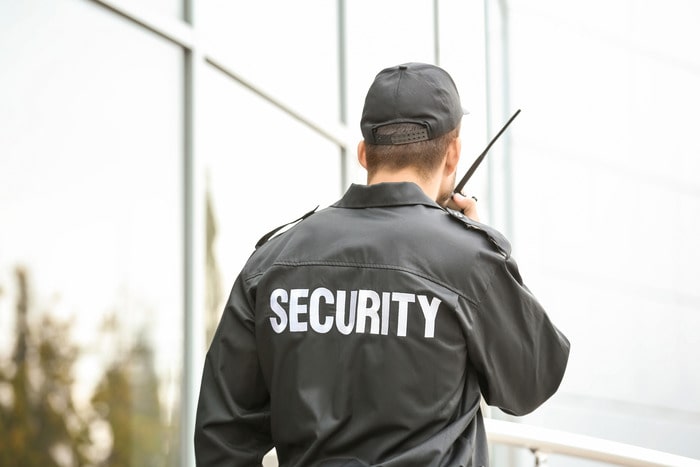Security Guards patrol and monitor premises in various settings, like commercial properties, residential complexes, events, etc. They are also responsible for responding to alarms, disturbances and emergencies. Other duties include monitoring CCTV systems, enforcing security rules and regulations, recording incidents and taking action to deter unauthorized access, theft and vandalism. They also play a critical role in escorting employees into and out of buildings and to their vehicles in the parking lot. Click the Website to know more.
Often, Security Guards are able to spot a crime before it occurs. They have a trained eye for spotting irregularities in behavior, like an unexpected change in voice or posture, or in the physical environment, such as a strange smell or sound. When they spot any suspicious activity, they will notify the proper authorities in a timely manner.

Guards are often trained in emergency protocols, like fire drills, identifying hazardous materials and how to handle them properly, CPR and first aid. They can also assist in the evacuation of a building or facility in the event of an emergency by alerting the appropriate authorities and directing them to safe exits.
Most Security Guards work for private security contractors, who hire and train them before assigning them to specific sites at their client facilities. However, some Security Guards choose to become independent security contractors and work directly for a business or organization. In this case, it’s important for these guards to maintain their own certifications and training. They should also have a high degree of professionalism and be highly motivated to perform their job well.
Surveillance
The ability to keep an eye on things is essential for security guards. Surveillance involves the constant, covert observation of people and places. Depending on the type of surveillance used, it can be done by cameras or physical tracking. It is also possible to combine physical surveillance with a face recognition system that can automatically identify and direct police to fugitives. Surveillance may be performed with a nondescript vehicle or on foot, and is usually done in a coordinated activity called a stakeout (the name derives from the practice of land surveyors who place survey stakes around the area to mark off a plot for construction).
The effectiveness of surveillance depends on its ability to provide top management with focused, reliable, timely evidence that is analyzed effectively and presented to them in time for action. This requires knowledgeable technical personnel who are able to identify and present information to managers that is most relevant to their intervention needs. This may involve presenting simple tables and graphs or using more sophisticated data analysis techniques. The type of surveillance also matters; those who support video surveillance in city streets may not support indiscriminate telephone taps, for example.
Detection of Irregular Activity
Security guards are often the first to notice any problems that may arise on premises. Whether it’s a fire, medical emergency, or criminal act, the security guard is often the first to respond and handle the situation until first responders arrive. This requires excellent communication skills as well as decisive leadership.
Security officers also ensure that preventative measures are being followed. They regularly perform safety checks to confirm that alarm systems, fire equipment, and other safety mechanisms are functioning properly. They also monitor any activity that could be deemed suspicious or out of the ordinary and report any findings to their superiors.
A good security guard is a highly visible presence in public areas, a deterrent to anyone who may be planning illegal activities on the premises. They are trained in conflict resolution techniques, allowing them to diffuse potentially volatile situations and keep them from escalating until police arrive.
In some cases, security guards are tasked with providing customer service. For example, when stationed at building entrances, security guards might be expected to welcome guests, offering information and directions. This is a very important part of their role as it contributes to a positive experience for visitors.
Security guards must be familiar with all the procedures of their employer’s establishment. They must have the ability to recognize all the people who come into their area of responsibility, detect any unauthorized individuals, and observe all situations. They must be able to determine details regarding an incident and communicate them clearly to other security personnel like EMTs or firemen. They must also know how to sound the alarm and call the proper authorities if necessary. This will help to prevent panic amongst the people and keep everyone safe during a crisis event.
Reporting
Security guards are responsible for monitoring their assigned areas, documenting any unusual or suspicious activity and reporting it to a higher authority. They may also be expected to patrol the premises, and provide customer service for visitors, customers or residents. Some security guards work outdoors, where they must be prepared to handle various weather conditions and travel from one area of a property to another.
The most common setting for a security guard is within a business environment. In this setting, a guard is often the first person to detect and deter crime, and will be stationed at the entrance of a building or facility, monitoring access control and enforcing rules like no smoking and loitering. They might be called upon to conduct internal investigations into disturbances, respond to alarms triggered by intruders or fire alarms; write reports; patrol the grounds; detain suspects until law enforcement arrives; and operate surveillance equipment such as CCTV cameras.
Many professional security guards are armed, which adds a level of physical protection to their role and can make them more effective deterrents to criminal activity. Armed security professionals receive a greater amount of training than their unarmed counterparts, including a weapons training program, active shooter training and psychological examinations. They are also regulated by the state in which they work, and are required to comply with the laws of that jurisdiction.
Other professionals in this field are not armed, and they focus less on deterring crime and more on patrolling the premises to observe activity. These guards are often more visible than their armed counterparts, and are stationed at key checkpoints around the property. They may also be required to train guards under their command.
Communication
Security guards work in a variety of settings and must communicate effectively in all situations. This can include interacting with guests, providing directions and offering assistance when requested. They can also have to write reports and document incidents that occur during their shifts. This requires clear recollection of events so that paramedics and responding officers can act quickly to de-escalate a situation, secure the area, redirect foot traffic or help people find their way out safely.
Security personnel often patrol premises to detect any signs of theft, damage or unauthorized entry and report suspicious activity to the proper authorities. They may also perform access control at building entrances and vehicle gates, meaning they must be able to verify that employees and visitors are authorized to enter. Other duties include responding to alarms; investigating disturbances and writing reports; apprehending suspects; conducting searches; enforcing rules and regulations and operating surveillance equipment such as CCTV cameras.
In addition to their patrolling and observing for signs of crime, many security guards are called upon to assist with serious emergencies such as medical problems or fires. They must be able to communicate with those who are experiencing these situations and summon emergency responders as needed. This is why clear communication, professionalism and physical fitness are essential to a career in the field of security.
For those who enjoy working in a customer-facing role, there are many options to choose from, including a job at a shopping mall where you can build a good rapport with regular patrons. Many officers who work in these types of positions report that it is one of the most rewarding aspects of their careers.
Other security guards may choose to focus on a specific location or a private event, where they can be stationed in the same spot throughout an entire event. This type of work may be better suited to those who prefer to have a consistent schedule and the ability to focus on a certain type of environment. Either way, there is a role for every personality in the field of security.

